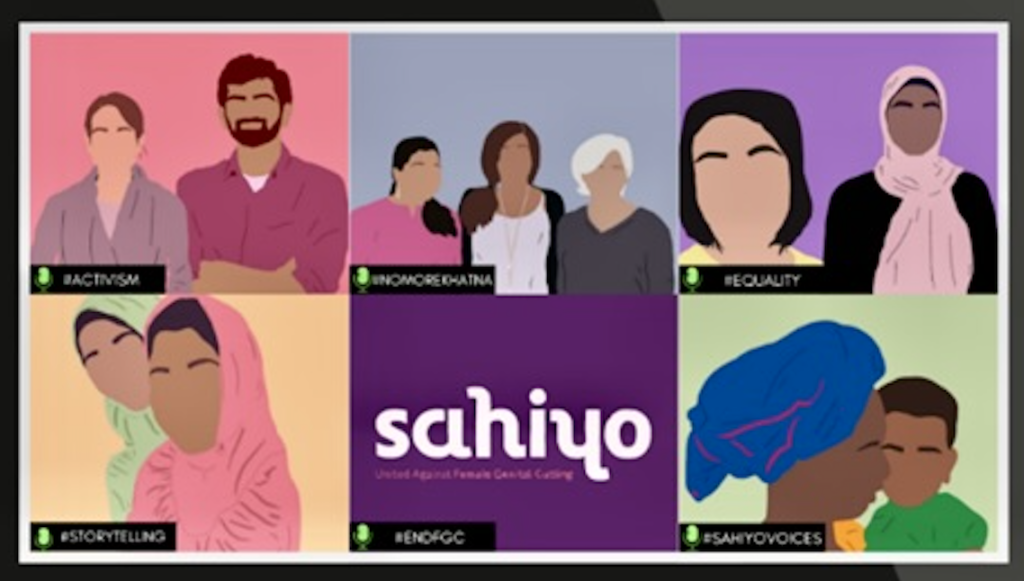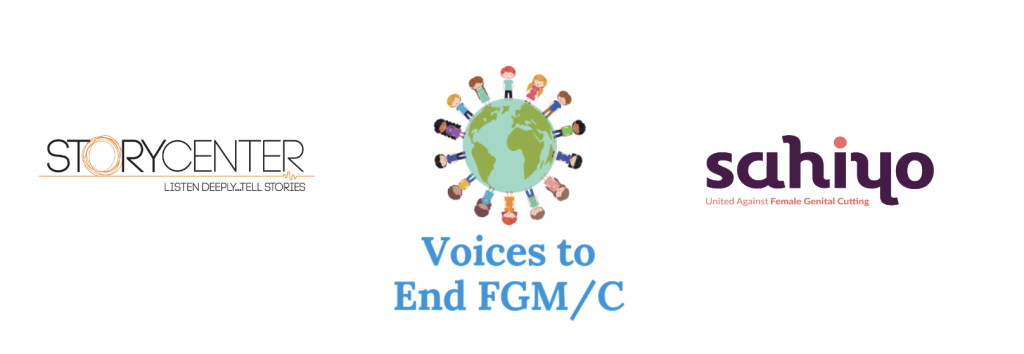Activists Retreat Reflection: A shift that was needed

By Amena Ali This was my second time participating in the Activists Retreat, and my first Retreat on the planning committee. I thoroughly enjoyed this year, and especially the shift from last year compared to this year. Last year was very focused on people relating to each other in sympathy, and this year it was more about being able to release anger and your anger being validated. I think that shift is really nice to see, because it also portrays how far people have come, in regards to their process for coping, for accepting, and fighting against this. I was really lucky to be a part of that, and I hope in the future, we’re able to do this in person! Read Amena’s reflection on participating in the 2021 Activists Retreat here. Read the report on this year’s Activists Retreat.
Activists Retreat Reflection: Umme’s experience

By Umme Kulsoom Arif When I was first invited to join the 2022 Sahiyo Activists Retreat I was… terrified. I almost didn’t sign up. I wanted to be an activist and I wanted to do more with Sahiyo, but I was scared of both.. Being both non-binary and a survivor of FGM/C, I always thought of myself as being in limbo — did my identity as a non-binary individual somehow invalidate the pain of my cutting? Was I less valid within the LGBTQIA+ community because of the trauma I had endured that shaped the way I viewed my gender and sexuality? Was I less valid within the Sahiyo community because I was only perceived by others to be a woman, as opposed to actually feeling like one myself? What did gender and sexuality even mean in the context of being a survivor, an activist, a Dawoodi Bohra, both in the closet and outside of it? I was scared. Every step of signing up — from filling out the interest form to creating my bio to sending my first message in the groupchat — was something I procrastinated, almost dreaded doing, because it cemented the feeling of walking into a den of lions. I wondered if I would be judged as harshly as I feel I am by the Bohra community I know, by my extended family, by myself. I don’t know what compelled me to take every step, but I’m glad that I did. The moment I logged onto that Zoom call and faced the community waiting for me, I realized: this was what being safe truly felt like. I sat, listened, and heard my thoughts, fears, and emotions echoed back to me in the voices of those who — like me — had either gone through or knew someone who had endured an injustice the likes of which I still struggle to properly name. Grief is a strange, frustrating thing. I never know what to grieve — does one mourn the moment one learns about the loss or the moment of the loss? Do I mourn the teenager tentatively coming out to their mother, and learning suddenly just how little their family valued their autonomy over the words of a man they had never met, or do I mourn the frightened five year old girl-who-one-day-would-not-be, laying on a cold metal table and feeling gloved hand wipe away her tears in an operating room? Or is it both, embracing all that fear, anger, and agony that comes from not knowing and needing to know at the same time? Even before the Retreat, I had been grieving. I went to therapy, I laid in bed and wallowed in my depression; I bargained with a God I almost didn’t believe in anymore for a justice that did not come; I denied the magnitude of what had been done to me, insisting that others had it so much worse and that I needed to just move on; I accepted the things I could not change and resolved to use my law degree to help others just like me; and… I raged. Quietly, internally, I burned with fury I could not share. As an activist, I knew I had to take a measured response because those who were for FGM/C would use anything, including the tone of activists, to decry and deny the validity of the campaign. But pain is not measured, it is not reasonable; it is a cruel, burning thing, and I found myself repeatedly wondering if I was even ready to do this activism thing if I couldn’t control my emotions. I felt like a bad person for being angry until the Retreat, until I heard the same emotions in the voices of others and realized the bottled up and tamped down anger was not an aberration, but a reasonable response. While it needed to be edited and pared down and softened to be shared with the world at large, it could be shared here, amongst others who knew the truth. It can feel isolating and infuriating to go against the grain of one’s own community, to be ostracized and judged and feel betrayed by one’s own family to the point where one loses faith. I felt alone, until I didn’t, until I realized there were others who felt as alone as I did. Which is a weird thing to feel, I think. What the Retreat offered me was a confirmation that I was not alone or an aberration, and that I was enough simply for wanting to speak up and speak about my story. I made friends. I was invited to speak about my identity as a non-binary survivor — which in itself was terrifying, but I did it and found myself feeling even more validated through that experience — and realized both the value of having a global community of people with whom I could be my most authentic (and slightly odd) self and of forgiving myself for the things I could not do in that moment. Read the report on this year’s Activists Retreat.
PRESS RELEASE: Dozens of Survivors of Female Genital Cutting Share Stories on New ‘Voices To End FGM/C’ Website

July 31, 2022 – After five years of supporting survivors of female genital mutilation/cutting (FGM/C) in sharing their stories, Sahiyo and StoryCenter announce the launch of a new website dedicated to highlighting this underrecognized human rights violation. “As a survivor of female genital cutting, I have experienced the frustration of being reduced to a statistic: one of the 200 million women and girls worldwide to have undergone the cut. As an activist working to end the practice, I have felt indignation at the often sensationalized ways in which survivors’ stories are depicted in the media. This is why Voices to End FGM/C is such an important, game-changing platform. It provides both survivors and activists with a safe and supportive environment and gives them the tools to share their stories with their own voices, words, and perspectives. Over 50 storytellers have benefitted from Voices over the past five years, and I am grateful to be one of them.” ~ Aarefa Johari, co-founder and trustee, Sahiyo India This website, voicestoednfgmc.org, features stories from dozens of survivors who have taken part in the Voices to End FGM/C project over the years. This project brings together cohorts of survivors and activists every year, and empowers each participant to tell their own story by creating a short video. Voices to End FGM/C has facilitated the creation of 55 such stories from over 19 countries, including the United States, Canada, India, Singapore, Indonesia, Sri Lanka, United Kingdom, Tanzania, Chad, and more. The storytellers represent a range of ages, economic statuses, cultural backgrounds, and gender identities. “We’re really excited to have this new platform which pulls all the Voices content together and showcases the courage and creativity of the many storytellers we’ve worked with over the years.” ~ Amy Hill, StoryCenter Silence Speaker Director After years of feedback and demand for such resources, this new website is a centralized platform, not just for the videos and blogs by survivors and activists, but also for educational and informational content created over the past five years. “In the struggle to end FGM/C, it is imperative to center the voices of activists with lived experience. These videos are used to help educate legislators and convince them to pass legislation banning FGM/C such as occurred in Massachusetts in the United States in August 2020.” ~ Mariya Taher, Sahiyo U.S. Cofounder & Executive Director The highlights of the website are the Voices to End FGM/C videos found on the Storyteller Video page. Behind-the-scenes footage of the workshops is also available, as are blogs written by storytellers about their experiences. Visitors can also keep up with upcoming events and workshops, including the Fall 2022 Voices to End FGM/ workshop. Contact Sahiyo: 1-857-209-4160 Email Kristel Mendoza Castillo: kristel@sahiyo.org About Sahiyo Founded in 2015, Sahiyo’s mission is to empower Asian and other communities to end female genital cutting and create positive social change through dialogue, education, and collaboration based on community involvement. About StoryCenter Mission Statement: We create spaces for listening to and sharing stories, to help build a just and healthy world. Our public and custom workshops provide individuals and organizations with skills and tools that support self-expression, creative practice, and community building.
